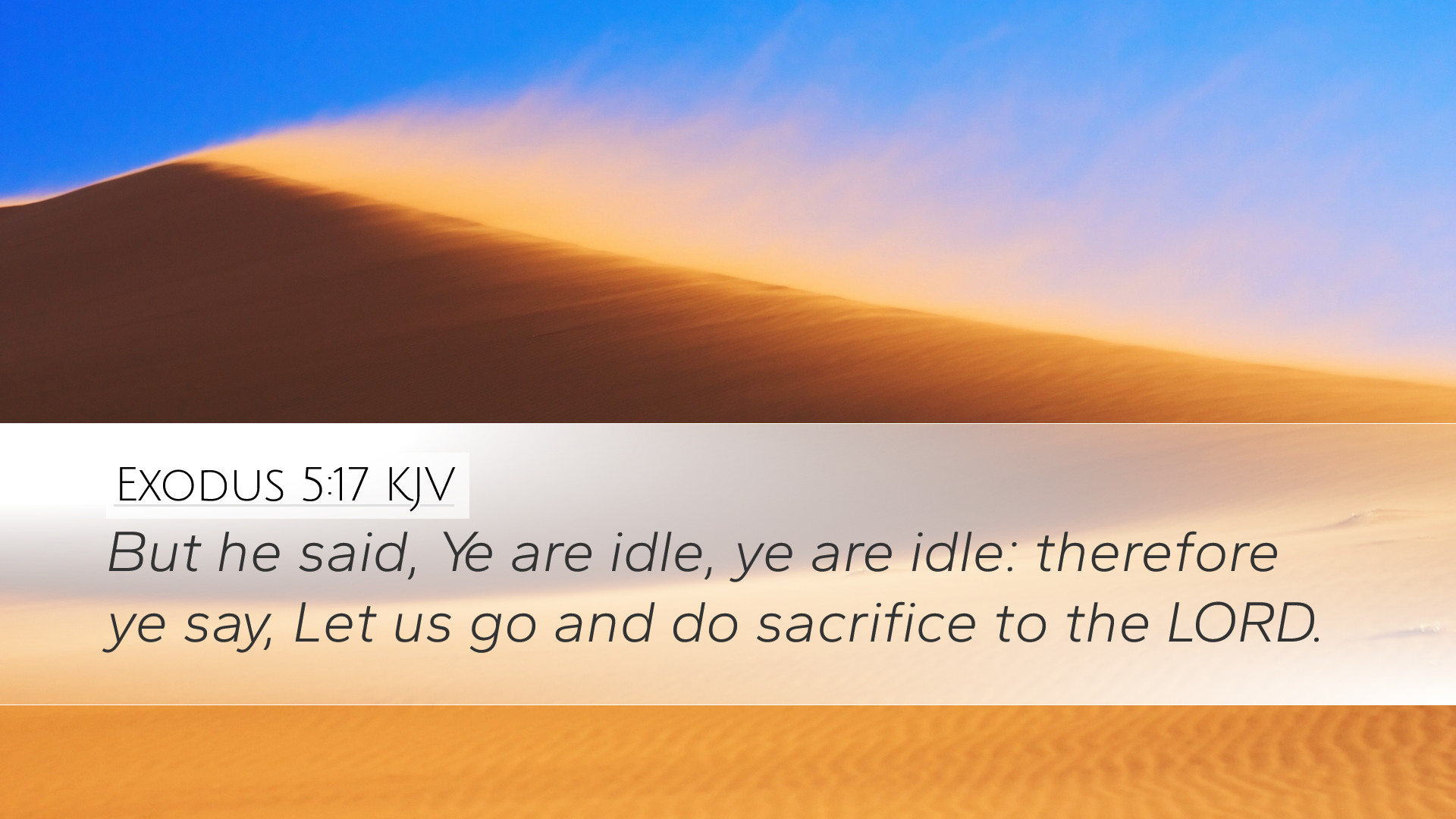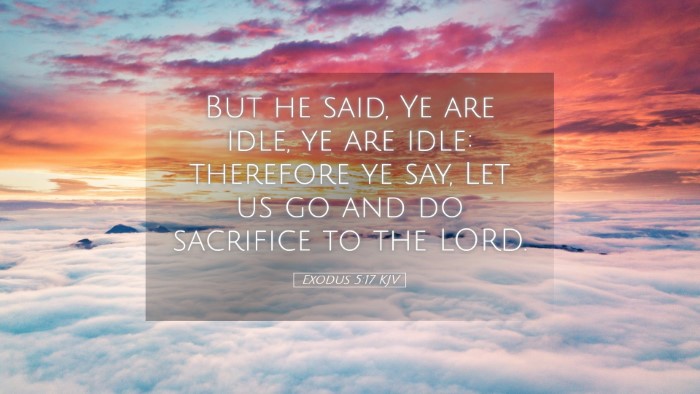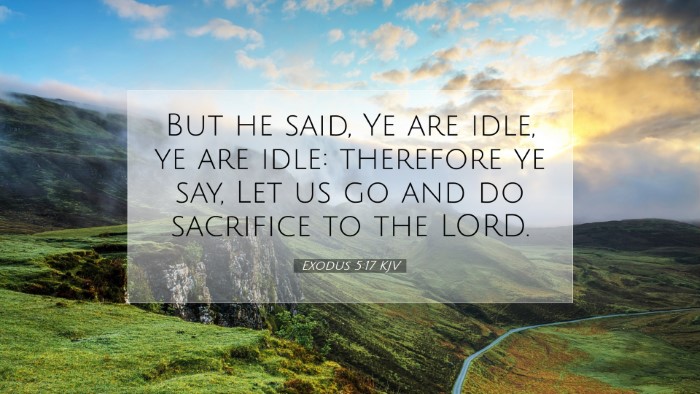Exodus 5:17 Commentary
Verse: "But he said, 'You are idle; you are idle. Therefore you say, “Let us go and sacrifice to the Lord.”'
Contextual Overview
This verse is situated within the larger narrative of Exodus, where Moses and Aaron confront Pharaoh to demand the release of the Israelites for worship. This demand is met with hostility and increased burdens, reflecting the central theme of oppression and liberation.
Exegetical Insights
Focusing on Exodus 5:17, the verse illustrates Pharaoh's dismissive attitude towards the requests of Moses and Aaron. His repetition of the word "idle" conveys his perception that the Israelites' desire to worship is merely a cover for their laziness.
Matthew Henry's Perspective
Matthew Henry emphasizes Pharaoh’s cruelty, stating that he uses this situation as a means to harden his heart against God’s will. Henry also points out that the oppressors often misinterpret the spiritual needs of those they subjugate, mistaking genuine desire for worship as idleness.
Albert Barnes' Commentary
Albert Barnes notes that this assertion from Pharaoh reveals a fundamental misunderstanding of the nature of Israel's bond with God. He sees Pharaoh's words as a tactic to not only suppress the Israelites but to demoralize them by belittling their commitment to God. Barnes argues that Pharaoh seeks to discredit the idea that the Israelites have a divine right and duty to worship.
Adam Clarke's Analysis
Adam Clarke delves into the psychological tactics employed by Pharaoh. He illustrates how the accusation of idleness serves a dual purpose: it not only seeks to maintain control over the Israelites by increasing their labor but also distracts them from their spiritual aspirations. Clarke's application can be extended to the modern context where those in authority may demean spiritual pursuits to maintain dominance.
Theological Implications
This passage highlights the theological notion of oppression juxtaposed against divine purpose. The spiritual struggle of the Israelites is indicative of struggles faced by faith communities throughout history, wherein their vocations are often devalued in secular contexts.
- Worship as a Right: This verse prompts significant reflection on the essence of worship as a fundamental human right rooted in divine interaction, rather than a luxury afforded only to the idle or privileged.
- Persecution of the Righteous: The dismissive attitude of Pharaoh parallels contemporary instances where spiritual pursuits are undermined by systemic pressures, inviting believers to contemplate perseverance in faith despite societal ridicule.
- The Role of Leadership: Pharaoh’s leadership style serves as a warning about the potential for power to corrupt and the importance of just leadership that respects spiritual convictions.
Conclusion
Exodus 5:17 serves as a powerful reminder of the complexities surrounding faith and oppression. The insights from Henry, Barnes, and Clarke invite readers to reflect on their own contexts where spiritual life is challenged by external pressures. For pastors, students, theologians, and Bible scholars, this passage demands a rich exploration of how faith communities can respond to adversity with steadfastness, while also advocating for the right to worship.
As we engage with the text, let us consider both the historical implications of Israel's plight and the ongoing relevance of their struggles as a reflection of our own faith journeys.


